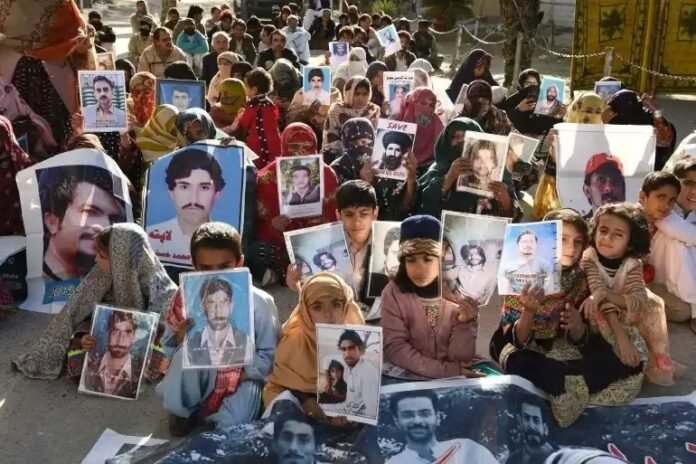Quetta, November 4 – The human‑rights debate around Pakistan’s far‑west province of Balochistan is far from a marginal dispute. It is a battle over basic freedoms, with reports pointing to forced labour, unlawful land seizures, and the disappearance of thousands of local residents. The long‑standing tension involves the Pakistani military, the federal government, and the province’s disenfranchised people, who simply want control over their own lives and resources.
A history of patience turned into conflict
For decades Baloch leaders were told to remain patient and to trust the state that promised development. “Patience can grow only where justice is the rule of law, not the rule of fear,” said a local activist. But when the military seized villages, fenced farmland, and used “counter‑insurgency” as a cover for oppression, the people’s patience ran out.
The military’s presence has risen to a point where it is seen as a quasi‑colonial power. It claims to protect the province, but many Baloch describe its actions as “predatory.” From 2000 onward, the army has built roads, roads, and secure supply lines—all funded by projects that draw on Balochistan’s rich mineral resources, yet the local population sees none of the benefits.
Forced labour and economic exploitation
Every year, men and women in Balochistan are pressed into paid‑in‑kind labour for infrastructure projects tied to the army and Chinese‑backed initiatives. Soldiers announce new build‑orders, threaten families with arrests, and block local fishermen’s access to the Arabian Sea. The result: local communities lose their generation‑long fishing territories while the military builds new bases.
In 2025, the Baloch were left behind in the “development” boom that turned the port city of Gwadar into a logistical hub. A local fisherman, who had worked the coast for three generations, reported his boat was seized and told the army that his “rights” were cancelled. “It is a form of modern slavery, wrapped in patriotic rhetoric,” he said.
Land seizures and disappearances
Rural districts such as Kech, Panjgur, and Khuzdar have isolated communities for years. Villages have been emptied overnight, farms fenced off, and homes turned into checkpoints. The military justifies these moves by citing security needs, yet the country’s anti‑terror laws are applied to curtail dissent, arrest educators, and silence student movements.
Thousands of Balochs have been subjected to enforced disappearance. Men and boys have vanished from markets, from schools, and from checkpoints. Families vent their grief by holding photos at protests marked “no regret, no capitulation.” The authorities rarely provide answers, leading the Baloch to question whether any part of the country’s legal system still serves justice.
Public resistance and international demands
Activists from Balochistan, many of whom are women, have stepped forward with their stories, refusing to let the state’s narrative dominate the conversation. They march from Quetta to Karachi holding portraits of missing sons, demanding free elections and an independent inquiry into the human‑rights violations. The federal government’s statement of “integration” rings unheard, because those words have been said before and turned into more uniformed occupation.
International organizations have called for an independent investigation into forced labour and human‑rights abuses, and some suggestions have emerged for an impartial tribunal. Yet the Pakistani army insists on keeping its operations confidential for national security reasons.
The wider picture
Balochistan is a resource‑rich province. It stores natural gas, coal, copper, gold, and can become a major deep‑sea port. As the nation’s economy grows, so does the military’s investment in the province. While foreign companies and the state generate billions of dollars, the local people—whose lives have been disrupted for decades—get few tangible benefits.
Their stories show a unique pattern: the state’s “development” projects rely on coercion. Men are paid at best a day wage, women find themselves locked out of their own homes, and villages are turned into military training grounds. The militarization of Balochistan hints at a power dynamic that is often hidden from global headlines.
A call for accountability
The situation in Balochistan underscores the need for clear accountability. The government and army must relinquish unlawful seizing of land, free forced labour, and cease mass disappearances. The international community can play a role by applying diplomatic pressure and encouraging a human‑rights monitor.
Ultimately, Balochistan’s future hinges on recognising the province’s legitimate rights to its resources and its people’s right to life, dignity, and freedom. It is only by moving beyond negotiation terms, such as “unity and development,” and listening to mothers, students, and ordinary workers that the cycle of oppression can break.
Source: ianslive
Stay informed on all the latest news, real-time breaking news updates, and follow all the important headlines in world News on Latest NewsX. Follow us on social media Facebook, Twitter(X), Gettr and subscribe our Youtube Channel.



